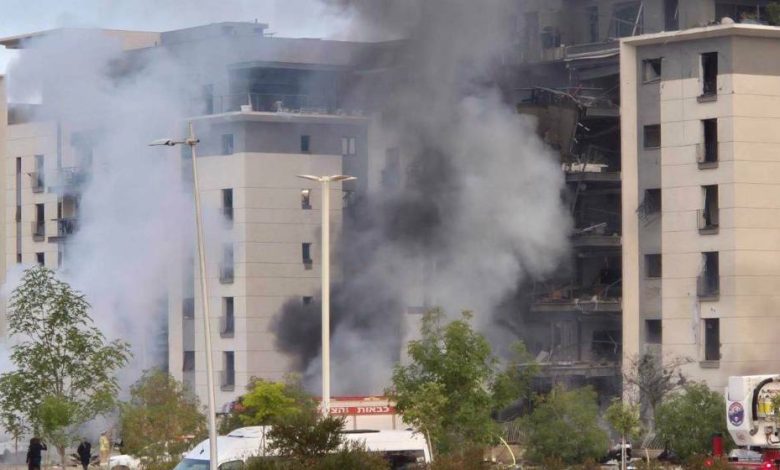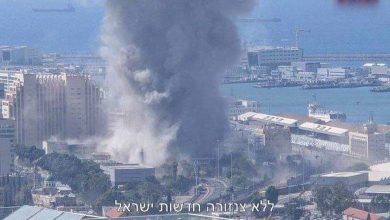Iranian Missile Targets Core of Israeli Cyber Hub in Beer al-Sabe

In the aftermath of a series of coordinated cyberattacks by the Israeli regime targeting Iran’s banking network and state television, Iran retaliated with a missile strike aimed at the area commonly considered the regime’s cyber hub.
On Friday morning, the Iranian armed forces launched a fresh phase of Operation True Promise III, targeting multiple key Israeli military, intelligence, and industrial sites associated with the regime’s aggressive actions in regions such as Gaza, Lebanon, Yemen, and Iran.
A primary target was Beer al-Sabe, recognized as the epicenter of Israel’s cyber industry and a key node in its international cyber warfare operations.
In reports emerging from Israeli media, it appears that a missile launched by Iran successfully bypassed the complex, multi-tiered air defense systems of the country. Although the projectile was initially detected, the interception systems were unable to neutralize the threat.
Following the precision-guided strike, dense plumes of smoke were observed emanating from what was previously identified as a key hub for the Israeli cyber army, now reduced to rubble.
The park is home to prominent cybersecurity companies with strong connections to Israel’s military and intelligence networks, as well as global technology leaders including IBM, PayPal, and Oracle.
Beer al-Sabe operates as a crucial hub for the coordination of military and intelligence resources, with substantial components of Unit 8200, Israel’s premier cyber intelligence and surveillance unit, located within the city.
Within this environment, the occupation forces, private cybersecurity companies, and regime-affiliated academic institutions collaborate closely, employing cyber warfare as an instrument of settler-colonialism and expansionist strategies both regionally and beyond.
Ben-Gurion University is a central player in the country’s cybersecurity research efforts and works closely with military and intelligence sectors to advance offensive cyber capabilities, potentially in violation of international laws.
Successive Israeli governments have made significant investments in Beer al-Sabe to establish it as the cyber capital of the state, attracting leading global cyber firms to establish operations in the area.
In 2009-2010, a partnership with the United States resulted in a significant cyberattack on Iran’s nuclear facilities, leading to damage to centrifuges. This marked one of the earliest known uses of cyber technology for destructive purposes, occurring despite Iranian sites being monitored by the United Nations.
Throughout the years, it has conducted cyberattacks targeting Iranian ports, fuel distribution systems, and railway networks, flagrantly breaching international norms that regulate cyberspace activities.
The regime has focused its efforts on targeting resistance groups such as Hamas in Gaza and Hezbollah in Lebanon, with the intention of disrupting their communication networks and operational activities.
At the heart of these operations lies Unit 8200, a division that has become well-known for spearheading the Israeli military’s cyber intelligence initiatives. This unit is responsible for extensive surveillance activities, espionage operations, and aggressive digital campaigns.
The regime has reportedly utilized cyber tools to conduct surveillance on global governments and institutions. Pegasus spyware, a tool developed by Israel’s NSO Group, has been employed to discreetly access mobile devices for intelligence purposes.
According to regional cybersecurity officials, Friday’s Iranian missile attack on Beer al-Sabe was described as a long-awaited retaliation for years of cyber aggression originating from the city.







